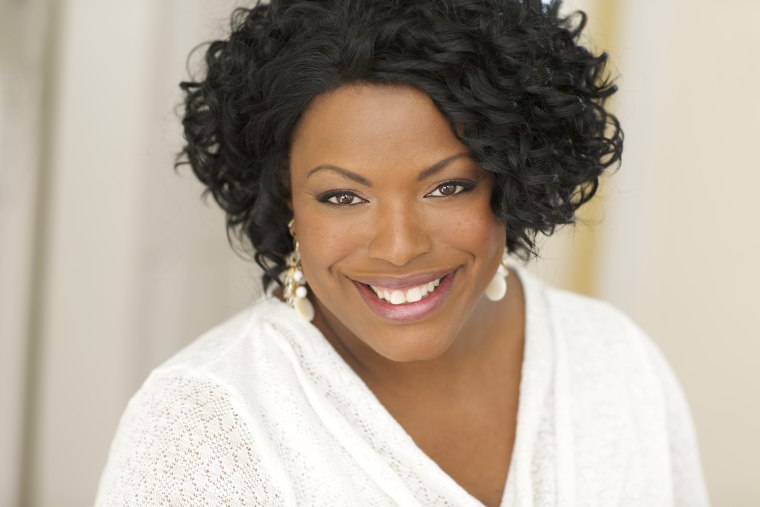We’re in the middle of a raging inferno ignited at the crossroads of passionate Black Lives Matter protests and the threat of COVID-19. The pressures of this emotional roller coaster are real and being felt, especially by Black people. That’s why our mental health maintenance must be the personal fire hydrant we use to extinguish the flames of stress, fatigue and anxiety that are roaring today. Self-care is no longer just an option.
Historically, Black people have been viewed as strong enough to bear life’s psychological, financial and social burdens without breaking. Much like the volcanic eruption of civil unrest we are witnessing, brought on by years of suppressed racial inequities and injustice, many of us are at our breaking point.
More than half of all Black adults in the United States are affected by stress and hypertension. We also report feeling sad, hopeless and as if everything is an effort all or most of the time, at nearly twice the rate of white people. Throw in COVID-19 and the protests, and you have the recipe for a perfect storm.
Black people have been devalued in the world on structural and societal levels. From the unapologetic shortages of minority cartoon characters and Barbie dolls for children of color to play with, to prominent leaders who use the prestige of their platforms to marginalize Blacks and other minority groups, there is no escaping the message from many of them that ‘Black lives don't matter.” The dirty little secret that no one wants to talk about is how deeply these messages are internalized by many Black people. The ongoing battle to quiet the chatter of degradation is debilitating. That’s why we need to work harder to establish a self-care routine, including mental health support services when necessary.
I recently sat down with a 58-year-old Black woman, who was incredibly stressed out and overweight. She broke down in tears during a moment of self-reflection. She lived less than five blocks from a gorgeous park. She had the world’s most spacious gymnasium in her back yard, yet she had only walked on the park’s path twice in 12 years. I asked her, “Why can’t you start a fitness program by walking the park trails?” She looked at me with a blank stare and said, “Why haven’t I done that?” We both knew why. Routine self-care was essentially a foreign concept to her, brought to the forefront of her life as a result of failing health. From an early age, she was taught to work hard, lay low, and take “it” as it comes- “it” came in the form of diabetes and clinical depression.
Black people are not a monolithic group. Yes, many of us have put our therapist's phone numbers on speed dial and we do take luxury vacations. Sadly, some of these options are out of reach for far too many Black people who are working hard to simply survive.
In today’s America, the lack of supportive mental health service options, combined with self-neglect, could be a death sentence. You must know there are options available to take control of your emotional health today, even without an office visit:
Take advantage of powerful therapeutic content, for free
Most therapists charge between $100-$200 per hour, and some more. However, millions of therapists create high quality, transformational content on YouTube, known as Tube Therapy, and other media outlets, that you can access for free.
Beat isolation by thinking out of the box
Nearly half of all Black Americans feel isolated on a regular basis. Remember that allies and strategy in the quest to support your mental health include the unconditional love of a pet, and relaxing strict standards about the people you can connect with and enjoy. Even if it is with a semi-annoying cousin, find ways to connect with others.
Empty your mental trash daily
The toxic build-up of emotions in today’s climate is real. You don’t necessarily need a live therapist to unload heavy emotions. Light a candle, place it on an empty chair- and say what’s on your mind out loud.
Buddy-up
Secure one or two ‘accountability buddies’ to keep you on track with your wellness goals. Call each other once or twice a week, and find ways to reward yourselves for staying on track.
Stop flirting with self-care as an option
We don’t think of going to our jobs as optional because the paycheck we earn is how we survive. You can earn a second paycheck by taking care of your mental health and well-being.
Remember, our mental and physical health are locked into a ‘death do us part’ marriage. The reality that the deafening chants for racial justice and equality cannot drown out is that if Black people’s minds and bodies are worn out by stress and mental fatigue, it may not be Covid-19 or a heart attack that kill us. It will be the poor conditions of self-neglect that render our immune systems too weak and weathered to mount the necessary battle, ensuring we live to fight another day.
Sheila Robinson-Kiss is a therapist, mental health educator, and founder of the Rebalancing America and Beyond Initiative. Her work fosters personal accountability for implementing tools that sustain mental health and wellbeing, within individuals, groups, and organizations.
